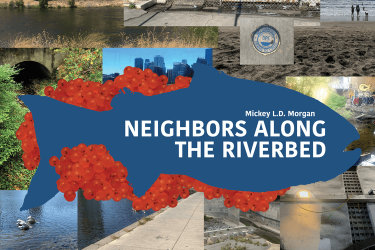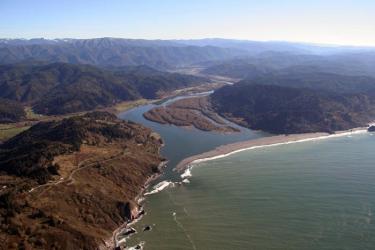As we approach 2022, we want to highlight several important year-end items for the West Coast groundfish fishery. Below is information for the various groundfish fleets for fishing in 2022.
2022 Trip Limits and Rockfish Conservation Area boundaries
- Limited entry trawl North of 40°10’ N. latitude
- Limited entry trawl South of 40°10’ N. latitude
- Limited entry fixed gear North of 40°10’ N. latitude
- Limited entry fixed gear South of 40°10’ N. latitude
- Open access North of 40°10’ N. latitude
- Open access South of 40°10’ N. latitude
2022 Cumulative Limits for the Limited Entry Fixed Gear Sablefish Primary Fishery
In 2022, the following annual limits are in effect:
- Tier 1 at 55,858 lb (25,337 kg),
- Tier 2 at 25,390 lb (11,517 kg), and
- Tier 3 at 14,509 lb (6,581 kg).
IFQ Fishing into the New Year
If you are planning to fish during the last days of 2021 and the offload is not completed until a 2022 date, the discards and landings will be debited against your 2022 vessel account, even if the discards and target species harvests actually occurred in 2021. We will debit your vessel account based on the offload year reported on the electronic fish ticket.
Post-season Trading of Quota Pounds
An option for post-season trading will be available starting January 1, 2022. Vessel accounts with a 2021 deficit will be allowed to cure a deficit with 2021 post-season quota pounds traded from a vessel account that has a 2021 surplus. See the Post-season Quota Trading Compliance Guide for more details.
IFQ Quota Pound Allocations
We allocated quota pounds to your 2022 quota share accounts. You can view these balances by logging into your QS account and changing the "Quota Year" to 2022. On January 1, 2022, these pounds will become transferable to vessel accounts for fishing in 2022. You will need to login and transfer quota pounds to a vessel account. If you have issues logging into your account, please contact the Permit Office at 206-526-4353.
Please note: Pacific halibut and Pacific whiting are managed under international treaties. The allocations for Pacific halibut and Pacific whiting are decided annually by an international body, so the sector trawl allocations for those species are interim amounts until the U.S. harvest amount is announced in the Federal Register, usually in March and May respectively. If applicable, you will receive additional quota pounds for those species at that time.
IFQ Vessel Account Reminders
We sent vessel owners who successfully renewed their vessel account online by the November 30, 2021 deadline an approved renewal receipt by mail. Some vessel owners did not renew their vessel account for 2022. Please remember that you cannot fish in the IFQ fishery without a valid, renewed 2022 vessel account. If you are unsure whether your vessel account is renewed, please contact the Permits staff at 206-526-4353.Here are a few basic vessel account reminders:
- If the ownership of your vessel changes, you must request a new vessel account.
- You cannot fish in the IFQ fishery if your vessel account has a deficit for any IFQ species. All vessel owners/captains should check their vessel account balance before every IFQ trip. Post-season quota trading may be conducted from January 1 to on or about March 14 to cure remaining account deficits from the prior year (see the Amendment 21-4 Compliance Guide).
- You can find a list of IFQ species and management areas on the NOAA Fisheries Trawl Catch Share Program website.
- IFQ vessels must have an observer aboard unless you are operating under an electronic monitoring exempted fishing permit (EFP), and must land their fish to a first receiver with a valid first receiver site license. You may check the list of licensed first receivers at any time by visiting the Public Permit Website and clicking on “First Receiver Site Licenses”.
- We will post updated shorebased IFQ vessel limits table on the NOAA Fisheries Catch Share website.
- If you identify a discrepancy in your vessel account between catch monitor and first receiver data, please contact Justin Kavanaugh at 206-526-4353 (justin.kavanaugh@noaa.gov). Similarly, if you identify a discrepancy in your vessel account involving your discard data, please contact Neil Riley, NOAA Fisheries Observer Program, 206-861-7607. You can also call the Permit Office at 206-526-4353 regarding discrepancies in your vessel account.
2022 Quota Share Permits
We mailed 2022 Quota Share Permits in mid-December. The permit will reflect your QS balances for all IFQ and Individual Bycatch Quota (IBQ) species as of December 1, 2021.
Cost Recovery Fee Percentages for 2022
We previously published the 2022 cost recovery fee percentages in the Federal Register on December 3, 2021.
For calendar year 2022, NOAA Fisheries announces the following fee percentages by program:
- 3.0 percent for the Shorebased Individual Fishing Quota Program;
- 1.7 percent for the Mothership Co-op Program;
- 0.2 percent for the Catcher/Processor Co-op Program.
For 2022, the mothership pricing to be used as a proxy by the Catcher/Processor Co-op Program is $0.09/lb for Pacific whiting.
Bycatch Reduction Engineering Program Federal Funding Opportunity
The Bycatch Reduction Engineering Program provides funding to support applied management projects and activities to reduce bycatch. Bycatch reduction is a top priority for NOAA Fisheries, as outlined in our National Bycatch Reduction Strategy. Bycatch contributes to overfishing, threatens endangered and threatened species and protected marine mammals, and can close fisheries, significantly impacting U.S. economic growth. Through this program, we support the development and testing of fishing gears that minimize bycatch and habitat impacts.
There are five high-priority areas for the Fiscal Year 2022:
- Researching new technology
- Encouraging technology adoption
- Reducing post-release mortality
- Avoiding habitat interactions
- Conducting international research
Find out more about the application process and schedule.
Questions?
Contact Kathryn Frens, NOAA Fisheries Permit Office, at (301) 427-8523.

